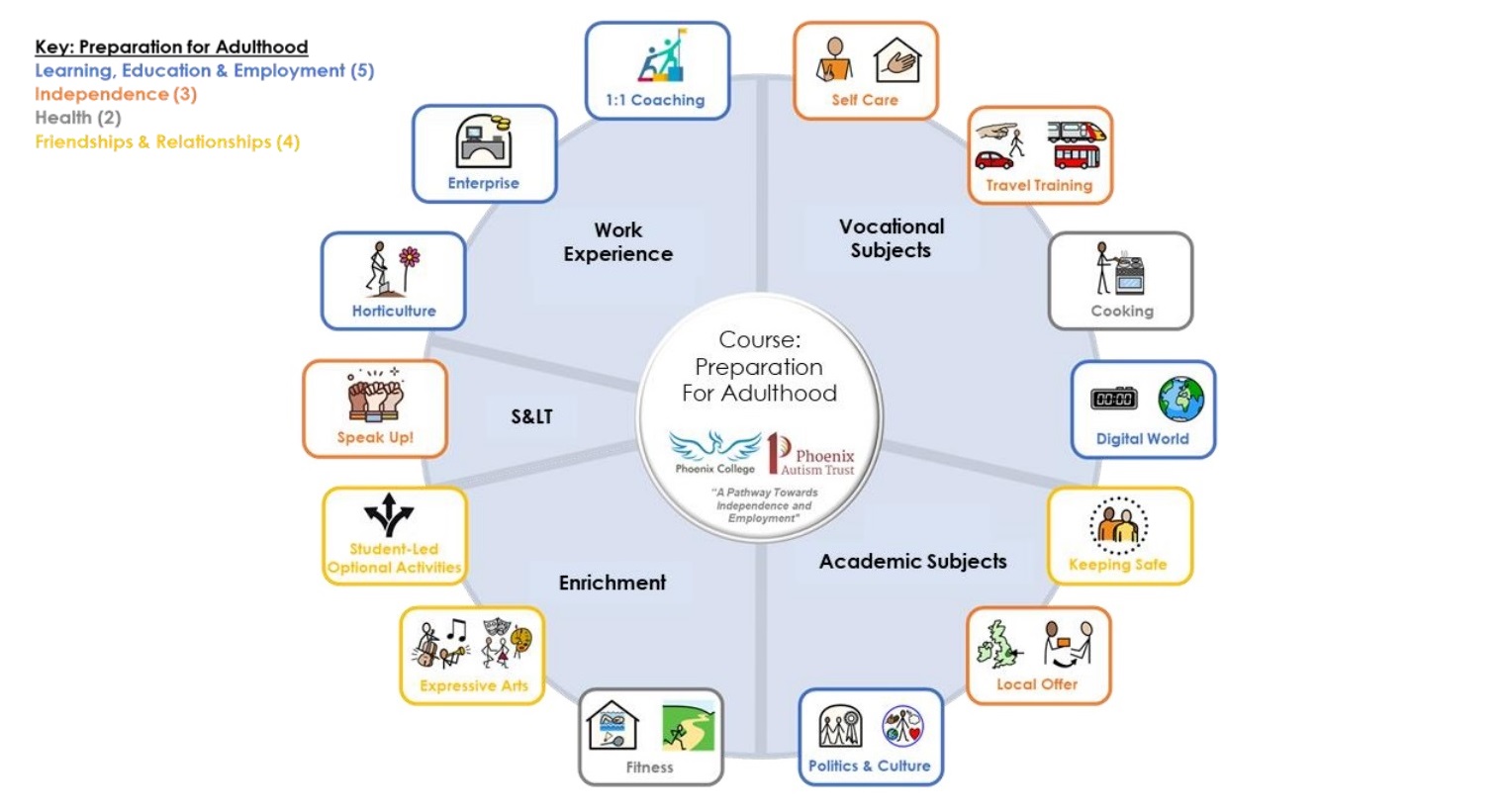1. Overview
Intent:
To create an outcomes driven curriculum. We want all students to have paid supported employment after college. Therefore, our curriculum offer is designed to inspire and prepare students for a wide range of potential career pathways.
To enable our students to be active members of their communities.
To equip students with the skills, knowledge and confidence to live as independently as possible.
To create a foundation for long term access to community services.
To help students develop the skills necessary to create meaningful and long-lasting relationships.
To help our students live happy, safe and fulfilling lives long into the future.
Implementation:
Functional English, Maths and Independence Skills are embedded throughout the curriculum. We emphasise work as being the main context for learning as one of the key functions of college is to prepare students for what comes after.
There is a strong emphasis on community-based learning, creating meaningful contexts where students can apply mastered and emerging skills in everyday situations.
Staff have high expectations of all students in terms of behaviour and willingness to engage in learning, promoting an adult approach to all activities.
We take a universal approach to speech and language. The College employs a Speech and Language Therapist (SaLT) three day per week. This time is used to help create personalised communication strategies and resources to meet the needs of individual students. SaLT support teachers and instructors with the delivery of the curriculum from a communication perspective. They also oversee 1:1 and small group SaLT interventions as well as delivering ongoing training to all staff as part of the college CPD calendar.
Each student has an EHCP map which shows how we breakdown their Long, and short-term targets, referred to as their ‘destination targets’, and ‘termly targets’ respectively. Progress is tracked, evidenced, reviewed, and celebrated using the principals and structure of the Recognising and Recording Progress and Achievement (RARPA) framework. Through RARPA, we are able to personalise students’ learning throughout the day, during any session.
All students have a progress review meeting each week where they meet with key staff to track their progress, triangulate evidence and amend/extend targets as necessary.
Each student has an ‘I Can’ baseline assessment in English and Maths in term 1 of each year. These assessments inform decisions as to which accreditations students take part in later in the year.
All students, regardless of ability, take part in externally recognised accreditations English & Mathins through Open Awards which are relevant to their needs and aspirations.
Opportunities for student feedback are imbedded throughout the curriculum. At the end of each lesson students self-assess their level of achievement with the learning objective. They also self-assess their level of progress with each of their EHCP targets at their weekly progress review meetings. Students also help to decide many aspects of their college experience using their vocational profile and student union. Students also help to decide on issues such as budgetary spending for key events and planning college trips.
Impact:
Students have the skills, knowledge and confidence to live a happy life filled with purpose long into the future.
Students have mastered transferable skills which can be applied and built upon as they go forward in life.
Transitions onto future destinations are positive, appropriate, timely and student centred.
Students graduates college with paid, supported employment.
2. Programme of Study
The curriculum design, rooted in the four Preparation for Adulthood (PFA) areas, serves as a unifying framework that aligns our practices with all key stakeholders involved in supporting our students. By structuring our curriculum around these PFA areas outlined in students’ Education, Health, and Care Plans (EHCPs), we ensure that all relevant parties, including students, families, staff, and other supporters, have a shared understanding and investment in the educational journey. This alignment enables effective collaboration and communication, as everyone involved can actively contribute to and support the students’ development in areas such as independent living skills, employment prospects, community participation, and health and well-being. Through this cohesive approach, our curriculum design becomes a vehicle for fostering comprehensive and holistic growth, ensuring that all stakeholders are actively engaged in preparing students for a successful transition into adulthood.

